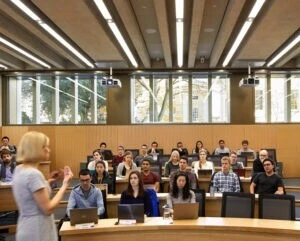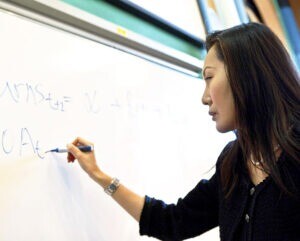A world-class programme, giving you a solid basis in research methodology
The MPhil in Innovation, Strategy and Organisation is an interdisciplinary programme exploring innovation and change through 3 interconnecting themes:
- innovation and work practices
- innovation and strategic change
- new organisational forms
The programme seeks to provide the methodological and theoretical foundation for further research and is specifically aimed at students intending to continue to a PhD degree, whether in Cambridge or elsewhere.
Our professors discuss what they enjoy about working with MPhil in ISO students.
Programme outline
Learning experience
The field of innovation, strategy and organisations is inherently interdisciplinary, and so is this programme. You will study the key theories and central debates in academic ISO literature, and you will be challenged to sharpen your reading, writing, interpretation and research skills.
You will learn through inspiring lectures with Cambridge Judge expert faculty, independent reading and hands-on research. Classroom discussions and group debates are central to many courses and we expect students to actively contribute, fostering a learning environment where ideas can be generated and discussed.
Assessment
Assessment will be by written examination, essay, or course work, depending upon the nature of the particular course. Each course carries the same weighting towards the final mark. The 12,000-word dissertation is equivalent to 3 courses.
Continuing to PhD
If you wish to continue to the PhD, you must apply by the end of your first term on the MPhil. Interviews take place early in the second term, with final decisions based on:
- reports from interviews
- academic reference letters
- how your research interest fits the faculty’s expertise
- performance in Michaelmas term
Formal PhD offers are made in February, typically conditional on final performance in the programme. All continuing PhD students are fully funded.
Core courses
Explore our core courses. You will take 3 core courses, one for each of the areas of Innovation, Strategy and Organisation, and 2 research methodology core courses.
Electives
Choose one specialist elective from our list of topics. You will need to choose particular electives if you’re planning on continuing to a PhD at the Business School.

Dissertation
At the end of the programme, you will work on your dissertation on any subject within the broad field of innovation, strategy and organisation on which a Cambridge Judge Business School faculty member agrees to supervise a student.
The MPhil in Innovation, Strategy and Organisation dissertation can be on any subject within the broad field of innovation, strategy and organisation on which a Cambridge Judge Business School faculty member agrees to supervise a student.
While the time available for the Innovation, Strategy and Organisation dissertation and its word length (12,000 words) are recognised to limit the depth and scope of the research that can be undertaken, your dissertation is nevertheless expected to be an original piece of work that advances knowledge in its field.
The MPhil dissertation serves as a demonstration of your research capabilities and can be the foundation for future PhD studies.
In some cases, students may be able to do an additional 2 electives and one Individual Research Project, instead of the dissertation.
The MPhil in ISO is the ideal steppingstone for a career in academia. Compact and rigorous, this 9-month programme allows students to focus on their areas of interest from an early stage in their career onwards and equips them with the knowledge and skills to thrive in the competitive environment of management scholarship. The small class sizes and fantastic supervision render this programme a unique experience in a beautiful setting. My fellow students at Cambridge Judge Business School constitute a supportive network of inspiring companions and, most importantly, great friends.
Watch the video: “Why did you choose to pursue an academic career studying business and management?”



